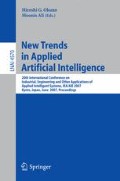Abstract
Real estate appraisal requires expert knowledge and should be performed by licensed professionals. Prior to the evaluation the appraiser must conduct a thorough study of the appraised property i.e. a land parcel and/or a building. Despite the fact that he sometimes uses the expertise of the surveyor, the builder, the economist or the mortgage lender, his estimations are usually subjective and are based on his experience and intuition. The primary goal of the paper is to present the concept of a fuzzy rule-based system to assist with real estate appraisals. The input variables of the system comprise seven attributes of a property and as the output the system proposes the property’s value. For the appraisal area, so called representative property is determined and in fact the deviations of property attribute values from the representative ones are the input into the fuzzy system. The proportion of the representative property price to the value of the property being assessed is produced as the output of the system. The experts have built the Mamdani model of the system, however they have not been able to construct the rule base. Therefore an evolutionary algorithm has been employed to generate the rule base. The Pittsburgh approach has been applied. The learning process has been conducted using training and testing sets prepared on the basis of 150 sales transactions from one city.
Access this chapter
Tax calculation will be finalised at checkout
Purchases are for personal use only
Preview
Unable to display preview. Download preview PDF.
References
Bonissone, P.P., Chen, Y.-T., Goebel, K., Khedkar, P.S.: Hybrid soft computing systems: industrial and commercial applications. In: Proceedings of the IEEE, vol. 87(9), pp. 1641–1667 (1999)
Castle, G.H.: GIS: Meeting the Information Demand. Valuation Insights and Real Estate Investor 42(1), 66–71 (1998)
Cordón, O., Gomide, F., Herrera, F., Hoffmann, F., Magdalena, L.: Ten years of genetic fuzzy systems: current framework and new trends. Fuzzy Sets and Systems 141, 5–31 (2004)
Do, Q., Grudnitski, G.: A Neural Network Approach to Residential Property Appraisal. Real Estate Appraiser, pp. 38–45 (December 1992)
Evans, A., James, H., Collins, A.: Artificial Neural Networks: An Application to Residential Valuation in the UK. Journal of Property Valuation and Investment 11(2), 195–204 (1991)
Gonzalez, A.J.: A case-based reasoning approach to real estate property appraisal. Expert Systems with Applications 4(2), 229–246 (1992)
Herrera, F.: Genetic Fuzzy Systems: Status, Critical Considerations and Future Directions. International Journal of Computational Intelligence Research 1(1), 59–67 (2005)
Hoffmann, F., Pfister, G.: Evolutionary design of a fuzzy knowledge base for a mobile robot. International Journal of Approximate Reasoning 17(4), 447–469 (1997)
McCluskey, W.J., Anand, S.: The application of intelligent hybrid techniques for the mass appraisal of residential properties. Journal of Property Investment and Finance 17(3), 218–239 (1999)
Nalepa, W.: Fuzzy Expert System for Real Estate Appraisal. M.Sc. Thesis (in Polish). Wrocław University of Technology (2006)
Rutkowski, L.: Methods and techniques of artificial intelligence (in Polish). PWN Warsaw (2005)
Soibelman, L., González, M.A.S.: A Knowledge Discovery in Databases Framework for Property Valuation. Journal of Property Tax Assessment and Administration 7(2), 77–106 (2002)
Worzala, E., Lenk, M., Silva, A.: An Exploration of Neural Networks and Its Application to Real Estate Valuation. The Journal of Real Estate Research 10(2), 185–201 (1995)
Author information
Authors and Affiliations
Editor information
Rights and permissions
Copyright information
© 2007 Springer Berlin Heidelberg
About this paper
Cite this paper
Król, D., Lasota, T., Nalepa, W., Trawiński, B. (2007). Fuzzy System Model to Assist with Real Estate Appraisals. In: Okuno, H.G., Ali, M. (eds) New Trends in Applied Artificial Intelligence. IEA/AIE 2007. Lecture Notes in Computer Science(), vol 4570. Springer, Berlin, Heidelberg. https://doi.org/10.1007/978-3-540-73325-6_26
Download citation
DOI: https://doi.org/10.1007/978-3-540-73325-6_26
Publisher Name: Springer, Berlin, Heidelberg
Print ISBN: 978-3-540-73322-5
Online ISBN: 978-3-540-73325-6
eBook Packages: Computer ScienceComputer Science (R0)

